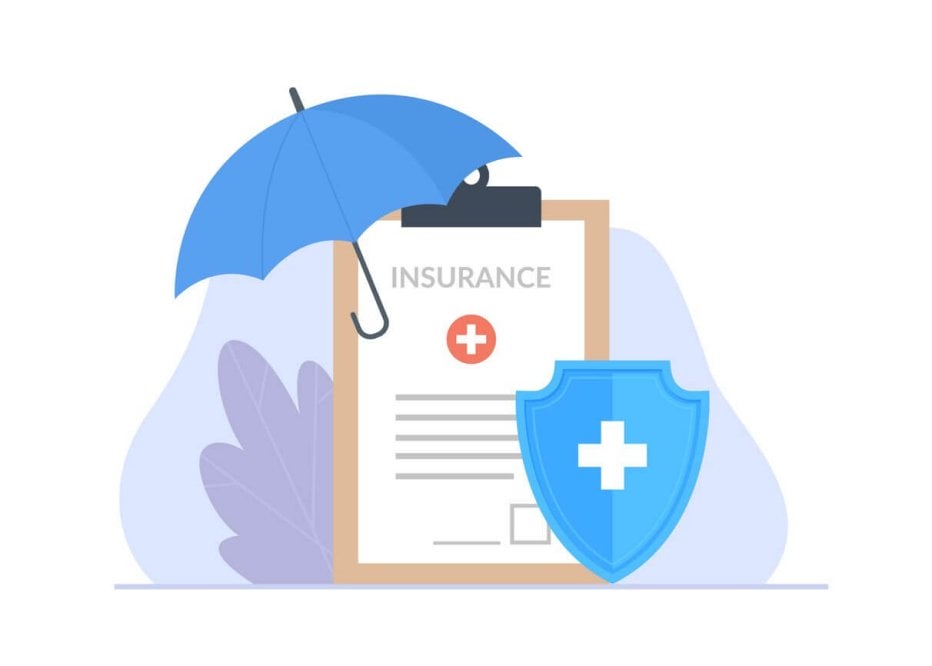Insurance: A Paper Route to Wellness

By: Troy Markel, President of VFIS + Chairman of the National Fallen Firefighters Foundation Board
Insurance can help promote your firefighters’ financial, mental, and behavioral health—plus learn about other value-added services that your insurance may offer to help your members thrive.
Whether it’s wondering how your family would pay the bills if your last close call had ended differently, reading too many online articles about obscure cancer symptoms, or fearing how your department will respond to 911 calls with fewer volunteers—there are a lot of things that can keep firefighters up at night. And, as a natural problem-solver, you probably spend a lot of time contemplating ways to “fix” these problems, too.
However, one solution you may be overlooking is your fire department’s insurance policy. Because what may seem like a long, lifeless, dust-filled packet of papers crowded with meaningless jargon—could actually be a financial, mental, and behavioral health aid to your members.
Here are a few examples of insurance products you might have already or could add at your next renewal that may make a meaningful difference in your department and provide much-needed peace of mind.
Products for your financial wellness
Helping protect your members and organization against the financial burdens of unforeseen events is one of the more obvious perks of insurance—however, it can go far beyond providing protections for your department’s apparatus and station.
For example, if you respond to a call in your personal vehicle and your wallet is stolen from your car while you’re on the scene, does your department have insurance for that? This type of protection could be available through portable equipment coverage that helps protect your team’s personal effects, as well as your department’s other on-the-go equipment like drones and trailers, at the emergency scene, station, and everywhere in between.
Although situations like theft could be costly and difficult, your members likely have more long-term and greater financial stressors. For example, volunteers may wonder what their retirement will look like because they spend their time volunteering instead of working a second job.
One benefit that could help your volunteers financially plan for the future is a Length of Service Award Program (LOSAP), which provides benefits based on years of service. LOSAP can also serve as a great recruitment and retention tool for your organization and help reduce the time, labor, and finance-intensive training costs.
Products for your mental health
You are called to scenes filled with trauma and, undoubtedly, that sometimes comes at the expense of experiencing trauma yourself. Insurance cannot stop those terrible moments from happening; however, it could assist you during your recovery from them and help provide ongoing peace of mind that you have support when needed.
For example, Accident & Sickness policies can provide financial benefits for your members who are injured or contract an illness during, or as a result of, their duties. Critical Illness coverage provides benefits for illnesses such as cancer, heart attack, kidney failure, and stroke. Group Term provides life insurance benefits for all of your personnel (with the option to include retirees, board, and auxiliary members).
Products for your behavioral health
Some insurers also provide preventative-focused programs to help address the unique behavioral health risks of first responders. For instance, a Member Family Assistance Program (MFAP) could help support your employees, volunteers, and organization by providing access to services that help you resolve productivity, health, and wellness issues. This includes counseling services with trained professionals who have experience with emergency personnel, treatment for behavioral health concerns (including addiction, depression, and anger management), and coaching to help you cope with family-related issues so that you can maintain a positive support system.
Picking the right insurance provider
Now that you know that your insurance policy could assist you with more than fender benders, burst pipes, and fallen trees—let’s talk about how to select the right insurance provider for you.
While there’s a lot that goes into selecting an insurance policy, one important thing to consider is working with an insurance provider that specializes in fire and emergency services and provides coverage for your unique needs. For example, traditional Workers’ Compensation policies don’t always adequately provide protections for emergency personnel who suffer disabling injuries or illnesses.
Also consider looking into what value-added services your insurer offers that help promote your members’ well-being, including industry-specific online courses, tools to help you maintain your wellness-related practices, and resources to help you learn about the latest health and safety best practices in the industry.
When you’re dealing with obvious and glaring threats day in and day out—it can be easy to overlook what seems like a piece of paper. That’s why it’s important to understand what’s in your insurance policy and how those coverages help you protect what matters most. After all, your hefty responsibilities and vital duties should be exactly what your insurance is designed around. Because you do incredible things and it’s what you deserve.
Troy Markel, President of VFIS + Chairman of the National Fallen Firefighters Foundation Board. VFIS is proud to have pioneered specialized insurance protections for America’s emergency service organizations over fifty years ago. And we’re just as proud of our continued dedication to respond to the unique needs of fire departments, EMS agencies, communication centers and other emergency service organizations through our holistic protections, responder training and safety-forward solutions.
Podcast
Contests & Promotions
















